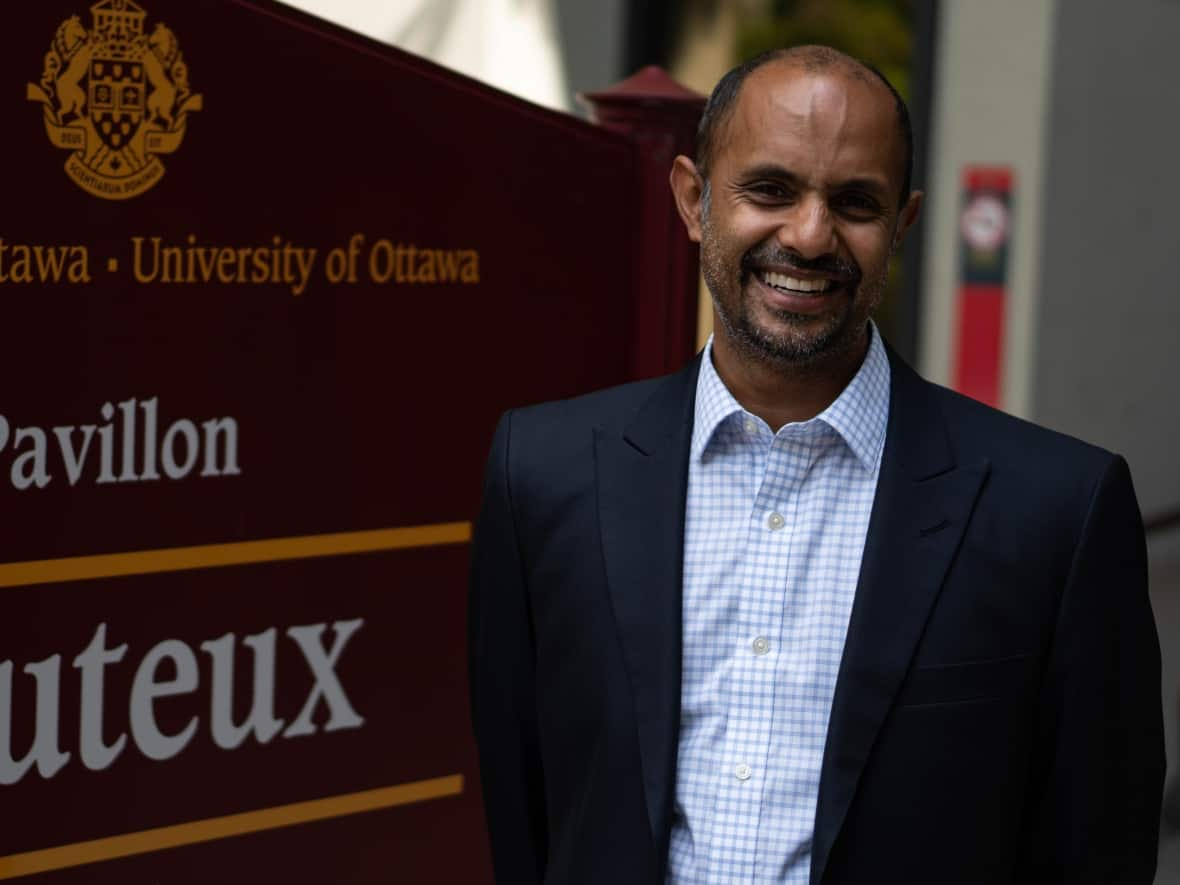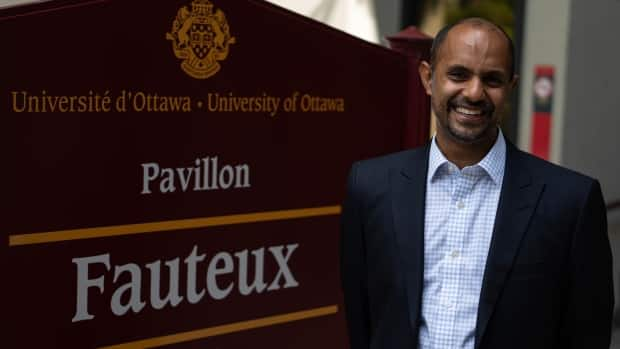Immunocompromised students scrambling for online options with return to in-person classes

Willow Robinson is planning to graduate from the University of Ottawa this year, but in order to safely earn her degree, she's spending thousands of dollars taking online classes at a school more than 3,500 kilometres away.
The lectures at Athabasca University in Alberta were the only virtual options she could find that meet course requirements while avoiding COVID-19 exposure, according to Robinson, who has a progressive degenerative muscle and nerve disorder and takes medication that lowers her immune response.
She's not alone. Robinson is also co-ordinator for the Centre for Students with Disabilities (CSD) at the University of Ottawa and says she's working with at least 81 other students scrambling to find professors who will accommodate online learning because they can't attend in-person classes.
"A lot of our students are currently suffering," she said, describing the university's stance as "lacking in care [and] lacking in ethical response."
After more than two years of the pandemic, the COVID-19 measures in place during previous waves have been dropped, leaving students and post-secondary staff to sort out for themselves how to proceed safely. While many have happily returned to in-person classes, others don't have that option and Robinson said they're being forced to choose between their health and their education.
The situation has created a vacuum where schools or governments should step up, said Raywat Deonandan, an epidemiologist and associate professor at the University of Ottawa.
"Institutions at that level have a leadership responsibility. They set the tone, they set the moral agenda and people follow suit," he explained.
"If they aren't taking the steps to mitigate transmission, people will assume the crisis is over and the pandemic is over and neither of those things is true."
University focused on 'exciting' campus life
A post on the University of Ottawa's website about the return to class this September said learning would mainly take place on campus, with no more than 10-20 per cent of courses offered online.
The university said ventilation has been upgraded to meet or exceed public health standards and stresses the desire to return to the "dynamic, exciting" campus life enjoyed before the pandemic.
University of Ottawa, like Carleton University and Algonquin College, continues to follow provincial guidelines which recommend people wear masks and get vaccinated to protect themselves from the virus, but make neither mandatory.
That's left lecturers in a position where they can ask, but can't require that masks be worn in the classroom, said Stuart Murray, a professor of rhetoric and ethics at Carleton.
He cares for two seniors who are undergoing chemotherapy and said so far his students have been "fantastic" about masking. The university has provided him with masks to distribute and he's using a larger classroom so people can space out.
Still, he said, the language of recommendations and stressing personal choice sounds odd compared to the messages previously used during the pandemic, describing it as an "about face."
"Words like support and respect implied a community and our responsibility for others," he said.
"Remember, 'We're all in this together?' That's something that we've heard for two years. But now suddenly, it's all about the individual kind of 'You do you.'"
Murray said he'd like to see a temporary return to masking as the colder months begin, suggesting it makes more sense to be proactive than reactive.
Looking for leadership
University of Ottawa law Prof. Vivek Krishnamurthy has been finding ways to create the "safest possible environment" for his students.
He's excited students are back on campus and said more learning happens in-person but, like Murray, he's asking students to wear masks.
"My sense is that on-campus masking seems to be the exception rather than the rule," said Krishnamurthy. After discussing it with his classes, the professor also dug up an old iPad he's now using to offer an online option so students who have symptoms don't feel forced to come to class for participation marks.

The professor said his experience shows individuals can make a difference, even with a lack of provincial or university support, but noted there's some "concern" on campus about a lack of leadership.
"I would like to see more leadership from the university and the province, knowing what we now know more than two-and-a-half years into the pandemic about effective interventions to keep us safe."
Western University made headlines in late August when it announced at least three doses of vaccine would be mandatory for staff, students and some visitors — a decision that's led to protests and a legal challenge.
Deonandan said he believes mandating vaccines or even masks could lead to "revolt," but some common-sense measures should be in place. The question is, which ones?
For Robinson this semester has seen a loss of accommodations readily available over the past two school years. She wants students who use CSD services to have access to recorded lectures and notes, and believes professors should support students learning online.
The University of Ottawa is "strongly recommending" professors record classes for students who can't make it, according to a spokesperson.
But for Robinson the focus on students who are excited to return to class is degrading for those who can't. She added the university's approach seems aimed at getting students back on campus where they'll be spending money.
"Between our money and our lives, it's the life that matters more," she said.
"Part of the reason why we're fighting so hard for this is because academic accommodation is not … a privilege. It's a right."


